
Ethiopia: Israel’s Twin In Africa Expansionism, Proxy Wars, And The Assault On Sovereignty
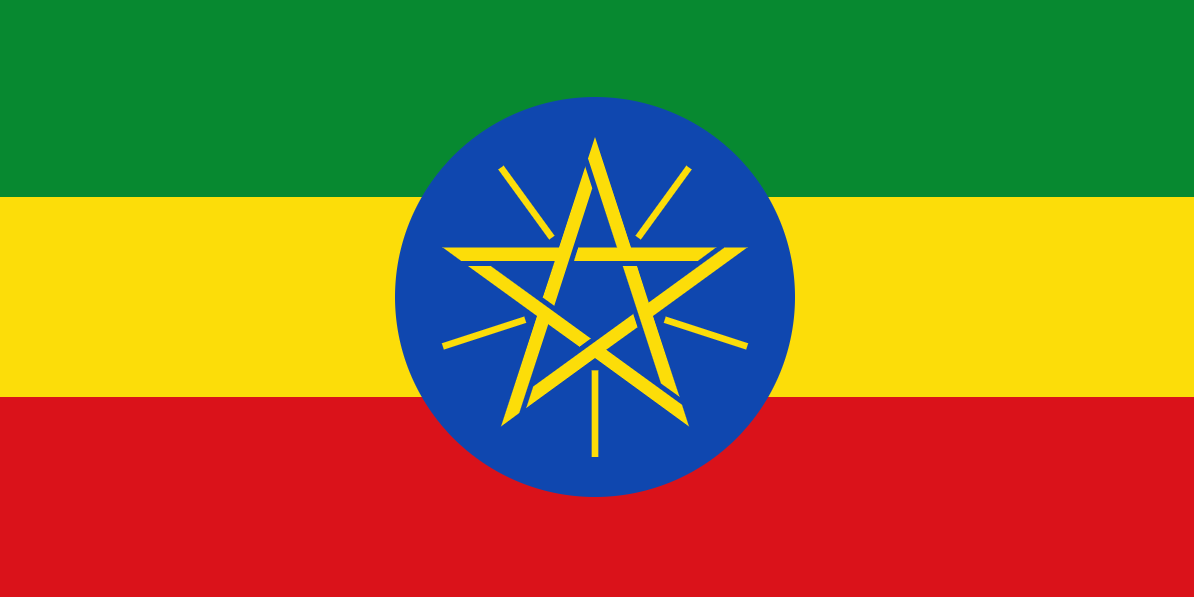
For generations, Ethiopia has functioned as the “Israel of Africa.” It is a state driven by relentless expansionist ideology, systematic manipulation of historical narratives, and unwavering backing from Western and Gulf powers. From Sudan to Somalia, and most explicitly Eritrea, successive Ethiopian regimes have pursued territorial encroachment with a logic strikingly similar to Israel’s decades-long appropriation of Palestinian lands, asserting fabricated historic rights while recasting aggression as security or destiny.
Like Israel, Ethiopia advances expansion through narrative domination. By reinventing regional history, it asserts “natural rights” to the Red Sea and adjacent territories while dismissing Eritrean sovereignty and the integrity of neighbouring states. This strategy manufactures crises to justify militarisation, branding opposition as extremist or destabilising. Western powers echo and amplify these claims, privileging Ethiopia’s version of “regional stability” while ignoring its violations of international law and sovereignty.
A Pattern of Regional Encroachment
Ethiopian expansionism is neither new nor isolated. Historically, the empire expanded its borders through conquest and annexation, especially during the reign of Emperor Menelik II, who incorporated vast and diverse regions into a centralised Ethiopian state between the late 19th and early 20th centuries. This included the subjugation of Oromo, Somali, and other ethnic groups that had never before been under Ethiopian authority. Ethiopia’s territorial ambitions extended beyond its traditional highland heartland, seeking domination over resource-rich lands and strategic corridors vital for regional control.
In the contemporary period, Ethiopia’s reach has continued, with military incursions and political designs in Somalia destabilising the fragile federal state, aggressive demands over fertile Sudanese borderlands, and ongoing conflicts that threaten Djibouti’s sovereignty. Meanwhile, Eritrea has borne the brunt of Ethiopia’s expansionist ambition, subjected for decades to border violations, economic blockade, and an orchestrated narrative campaign portraying it as the obstacle to peace.
The Logic of Appropriation and Narrative Control
This expansionist drive is underpinned by a narrative strategy akin to Israel’s: a calculated rewriting of other peoples’ histories and claims. Just as Israel appropriates Palestinian land and history to justify occupation, Ethiopia reinvents regional histories, claiming “natural rights” over the Red Sea coastline and adjacent territories, while dismissing the sovereignty of Eritrea and others.

Return of Red Sea Port of Assab: A Matter of Time
By framing opposition as extremist or destabilising, Ethiopia constructs justification for domination. Western powers often accept this framing, reinforcing Ethiopia’s claims of being a guarantor of stability while overlooking its violations of law and sovereignty.
Ethiopia’s Claim on Assab and the Red Sea
Ethiopia’s claim on Assab port and the wider Red Sea is not new. It echoes long-standing historic narratives reminiscent of the “chosen people” doctrine used by Israelis to justify expansion. Ethiopia contends it has a “natural right” and a “historic claim” to Assab, a port it used extensively for trade before Eritrea’s independence in 1993.
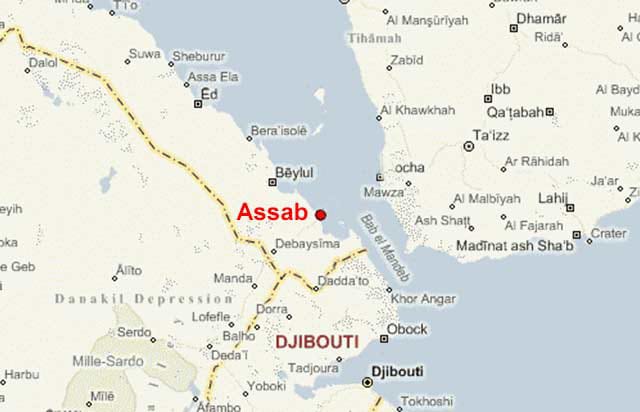
In reality, international law grants landlocked states the right to use neighbouring ports for trade, but not sovereignty over them. Eritrea and others have never denied Ethiopia legal access. The conflict arises because Ethiopia equates access with control, demanding direct sovereign authority over Assab’s operations. This mirrors Israel’s tactics in Palestinian territories, where claims of security or access mask annexation.
The revival of the Assab claim is not about trade but about politics. Ethiopian leaders exploit it as a nationalist rallying cry to distract from internal crises and consolidate power. This manoeuvre portrays control of Assab as a unifying cause while concealing the country’s more profound instability.
Abiy Ahmed says Ethiopia will soon reach the Red Sea
The Somaliland Deal: A Dead-End Strategy
Ethiopia’s 2024 deal with a secessionist faction in Somalia’s Berbera port illustrates the same logic. Concluded without Somalia’s consent, the agreement sought unilateral control of a critical maritime gateway. The backlash from Somalia, regional powers, and international actors exposed the deal as an illegitimate attempt to bypass sovereignty and entrench Ethiopian dominance.
This manoeuvre reveals Ethiopia’s consistent preference for coercive leverage over cooperative development, a strategy it also seeks to replicate in Eritrea’s Assab.
Expansion Toward Sudan
Sudan today is not experiencing a civil war, despite Western and Gulf narratives that frame it as such. It is the target of a manufactured proxy war, driven by the UAE, Israel, the UK, and their partners, each pursuing geopolitical and economic agendas at the expense of Sudan’s sovereignty. Ethiopia has inserted itself into this project, exploiting Sudan’s externally fueled destabilisation to entrench its own territorial presence.
The most visible example is Ethiopia’s claim over the fertile al-Fashaga borderlands. For decades, successive Ethiopian governments have tolerated and even encouraged the settlement of armed Amhara militias in Sudanese territory, creating de facto annexation under the guise of “historic cultivation rights.” This mirrors Israel’s sponsorship of settler encroachment in Palestinian lands: slow, piecemeal annexation dressed up as entitlement.
By aligning with and supporting the Rapid Support Forces (RSF), a paramilitary faction armed and financed by the UAE, Ethiopia plays the same role Israel does when it cultivates militias and proxies to fragment neighbouring states. Just as Israel empowers groups to destabilise Palestine or Lebanon, Ethiopia leverages the RSF to weaken Sudan’s central authority while advancing its own agenda.
Eritrea has long argued that Sudan’s instability was never organic but externally manufactured. It has consistently warned that proxy agendas, masked as humanitarian concern or “internal conflict,” were designed to dismember Sudan and reconfigure the Red Sea region under foreign control. The current trajectory vindicates those warnings. Sudan is under attack from outside, Ethiopia is complicit, and the Horn has once again become a laboratory for imperial projects that mirror Israeli designs in the Middle East.
Israel’s Interests in the Horn and the Red Sea
Israel’s fingerprints are all over the destabilisation of Sudan and the Horn of Africa. For decades, it has sought to weaken any state that could challenge its control of Red Sea routes or disrupt its normalisation drive with Arab and African governments. A fractured Sudan, divided by the RSF and with Ethiopia acting as regional enforcer, serves Israel’s objectives perfectly:
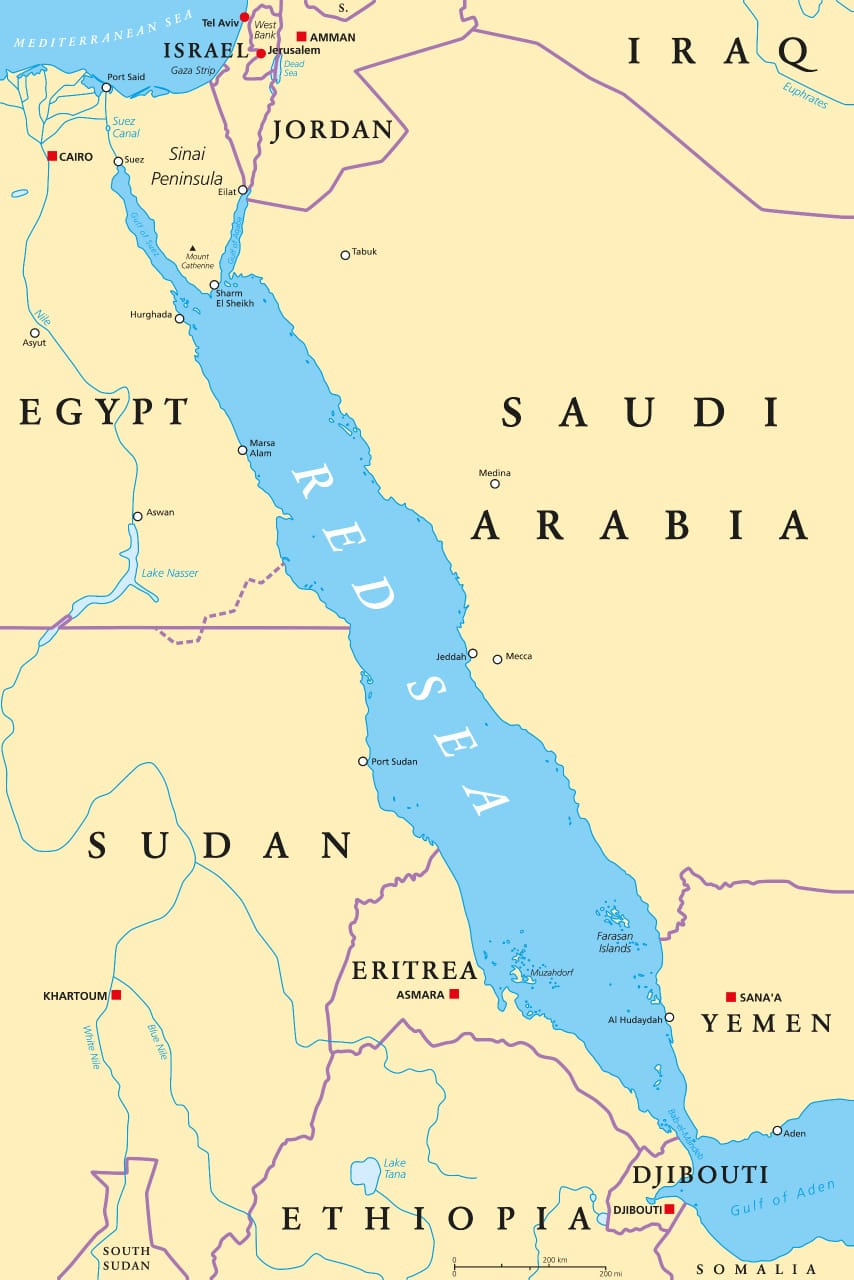
- Strategic Maritime Control. By weakening both Sudan and Eritrea, Israel secures an indirect stake in the Red Sea corridor. Control of chokepoints like Bab al-Mandeb allows Israel to safeguard shipping lanes, project military power, and deny Arab or African states independent action.
- Fragmentation as Security. Just as Israel thrives on a divided Palestine, it benefits from a fragmented Sudan that is too weak to defend Nile rights, Arab solidarity, or Red Sea sovereignty.
- Normalisation Leverage. Israel has pushed for normalisation with Sudan under the Abraham Accords. By backing forces like the RSF through its Emirati allies, it pressures Sudanese elites into compliance. Destabilisation becomes a bargaining chip: accept normalisation or remain in chaos.
- Encircling Resistance. Eritrea’s independence and refusal to normalise relations with Israel make it a target. By destabilising its neighbourhood, Israel seeks to isolate Eritrea and position itself as indispensable to Gulf monarchies and Western powers.
The Gulf Axis: Saudi Arabia and the UAE
The Gulf states are divided in style but united in their obsession with the Red Sea.
- UAE. Aggressively expansionist, Abu Dhabi bankrolls the RSF, arms Ethiopia, and pursues control of every strategic port from Aden to Berbera. Its ambitions dovetail with Israel’s agenda to fragment states, dominate trade, and profit from instability.
- Saudi Arabia. Riyadh is more cautious but equally invested. It views the Red Sea as its backyard and fears Iranian or Turkish influence more than Ethiopian expansion. While occasionally posing as a mediator, Saudi Arabia enables destabilisation by failing to restrain the UAE and by prioritising normalisation with Israel over solidarity with African neighbours. For Riyadh, Eritrea and Sudan are bargaining chips in larger deals with Washington and Tel Aviv.
Turkey’s Competing Interests in the Horn and Red Sea
Turkey has emerged as another pivotal actor in the Horn of Africa and the Red Sea, pursuing a strategy distinct from that of the UAE and Saudi Arabia, yet often in competition with them. Anchored in its ‘Mavi Vatan’ (Blue Homeland) doctrine, Ankara views the Red Sea as an extension of its maritime security and economic sphere. The Horn of Africa is critical to Turkey, with Somalia serving as the centrepiece of its Africa engagement, hosting Turkey’s largest overseas military base in Mogadishu.
Unlike the UAE’s transactional and militarised approach, Turkey has combined soft power tools (humanitarian aid, education, infrastructure, and business) with military cooperation. During Ethiopia’s Tigray conflict, Ankara supplied drones and defence equipment, cementing ties with Addis Ababa. Yet, Turkey also strongly supports Somalia’s sovereignty, putting it at odds with Ethiopia’s unilateral deals with secessionist factions in Somaliland.
This rivalry extends across the Red Sea. Abu Dhabi’s efforts to dominate ports from Aden to Berbera clash with Turkey’s ambitions to secure access routes and expand influence. Eritrea’s refusal to host foreign military bases or normalise relations with Israel indirectly complements Turkey’s position by limiting UAE–Israel–Ethiopia dominance. However, Ankara maintains a careful balance to avoid open confrontation with Addis Ababa.
Egypt’s Double-Edged Role
Egypt is caught in a paradox. Publicly, it defends Sudan’s sovereignty and opposes Ethiopian hegemony over the Nile through the GERD. Yet in practice, it often falls short of meaningful defence, leaving Sudan vulnerable.
Egypt benefits from Sudan remaining weak, since that makes Khartoum dependent on Cairo in Nile negotiations. Yet it cannot afford Sudan’s total collapse, which would empower Ethiopia and invite Gulf-Israel dominance. Cairo is also reluctant to openly challenge Israel or the UAE, fearing isolation. This hedging makes Egypt an unreliable guardian of Sudanese interests and indirectly strengthens Ethiopia’s hand.
Djibouti and Fraying Regional Relations
Ethiopia’s relationship with Djibouti, which hosts the main port serving Ethiopian trade, is tense. Djibouti has resisted Ethiopian demands for unmediated corridors and rejected proposals for Ethiopian military bases. Ethiopian authorities reportedly exert pressure over trade routes and refugees, while allegations of coercion and economic manipulation strain the alliance.
Djibouti’s insistence on sovereignty challenges Ethiopia’s dominance, while Ethiopia’s drive for Assab is partly motivated by its desire to reduce dependence on Djibouti. President Isaias recently underscored that any deal harming a neighbour’s development will not be accepted, reinforcing Eritrea’s principled stand on fairness, sovereignty, and equitable growth.
Western Backing and the Spoiler Role
Western powers, particularly the United States, provide Ethiopia with political shields, economic levers, and sanction regimes that consistently isolate Eritrea. This support emboldens Ethiopia to ignore international rulings, perpetrate incursions, and obstruct regional cooperation.
Ethiopia’s hegemonic designs have destabilised the Horn, undermining regional efforts for integration, peace, and economic development.
Eritrea and the Red Sea: The Last Independent Coast
Amid proxy wars, annexationist claims, and foreign-backed fragmentation, Eritrea stands out as the only Red Sea state that refuses to be co-opted. This independence explains why it has been relentlessly maligned, sanctioned, and targeted by narrative warfare.
Eritrea controls a highly strategic stretch of Red Sea coastline, including vital shipping lanes opposite Yemen and Bab al-Mandeb. Unlike Sudan, Somalia, or Djibouti, Eritrea has resisted foreign basing, rejected normalisation with Israel, and refused to auction its ports to Gulf monarchies.
This principled refusal makes Eritrea a direct obstacle to the Israel–UAE project of Red Sea dominance. It frustrates Ethiopia’s designs on Assab, whose sovereignty Asmara has no intention of bargaining away. Eritrea’s independence is therefore not symbolic but material, shaping the balance of power across the Horn and Red Sea basin. Its sovereignty has become the frontline of resistance to expansionism and proxy domination.
Eritrea’s Resilience and Unyielding Demand for Justice
Despite decades of external pressure, narrative distortion, and sanctions, Eritrea has stood firm. Its commitment to truth, lawful sovereignty, and peaceful coexistence remains unshaken. Eritrea’s resistance exposes the double standards of international actors and challenges the myth of Ethiopian regional leadership.
Eritrea’s survival and vocal demands for justice show that genuine stability in the Horn is possible only when expansionist myths are rejected, facts are acknowledged, and sovereignty is respected. The international community must confront Ethiopia’s ambitions if lasting peace and development are to be achieved.
Conclusion
Ethiopia’s long record of territorial expansion, narrative manipulation, and foreign-backed hegemony makes it the principal spoiler of peace in the Horn of Africa. Its simultaneous moves west into Sudan, east into Somalia, and north toward Eritrea expose an expansionist state serving external agendas.
The revived claim to Assab is not about trade but domination, an annexationist ambition cloaked in “historic rights.” Ethiopia’s partnership with the UAE-backed RSF, its alignment with Israeli and British designs in Sudan, and the diplomatic shields it enjoys from the United States and Europe reveal a destabilising nexus determined to fracture the region, capture resources, and control the Red Sea corridor.
Just as Israel masks occupation as security, Ethiopia cloaks annexation in the language of access and entitlement. Both rely on external enablers to perpetuate injustice.
Eritrea’s steadfast resilience exposes this machinery of aggression. Peace in the Horn cannot be achieved through myths or proxy wars but only through respect for sovereignty, justice, and truth. Honest observers must recognise the US–Ethiopia–RSF–UAE–Turkey-Israel–UK axis for what it is: a coalition of aggressors. Stability will only emerge when the maligned are heard above the invader’s myths.
Read More:
- For Bolé Festival, The Future Still Tastes Like Home
- Nigeria Condemns Israel’s Genocide In Palestine, Reaffirms Two-State Solution Call
About The Author
2 Comments
Leave a Reply Cancel reply
Related Articles
Tinubu Government Claims Intelligence Cooperation With the US, Yet New York Times Publishes Conflicting Story Following $9 Million US Lobbying Effort
When the New York Times published its investigation suggesting that claims from...
ByWest Africa WeeklyJanuary 19, 2026Mali’s Transition Leader Attends Swearing-In of Guinea’s President Mamadi Doumbouya
Mali’s President of the Transition, General Assimi Goïta, represented the country in...
ByWest Africa WeeklyJanuary 19, 2026Niger’s Security Forces Record Major Gains Against Armed Groups
Niger’s Defence and Security Forces have reported significant results following a week...
ByWest Africa WeeklyJanuary 19, 2026Burkina Faso Adopts Law Defining Status of Traditional and Customary Chiefs
Burkina Faso’s Transitional Legislative Assembly has adopted a new law establishing the...
ByWest Africa WeeklyJanuary 19, 2026






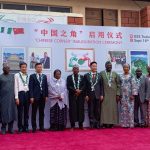



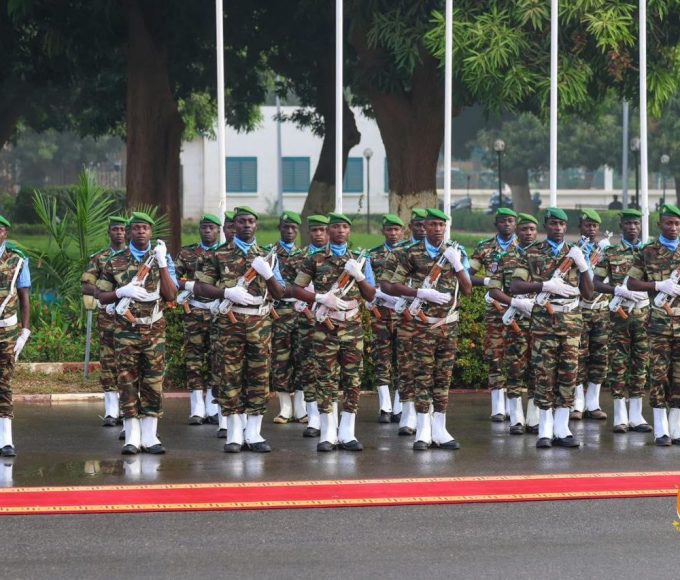

Dear Mr Ahmed,
Thank you for your detailed article.
Ethiopia is not the “Israel of Africa”, Ethiopia is the ETHIOPIA of Africa and the cradle of civilisation.
You are aware that the oldest human skull was found there. The information is in the public domain.
It is a fact that Ethiopia is an ancient nation and now a multi-ethnic, multi-religious federation.
The only country in Africa which resisted Catholicism in the 18th century and stayed Orthodox. The only African State which remained sovereign and was never a colony.
Ethiopia has been at the centre of the African struggle.
The late Emperor warned the defunct League of Nations that they would also suffer the invasion they turned a blind eye to in his country.
The video is there.
The current threat to Africa is janjaweedism & jihadism. That is the scourge that split greater Sudan. It plagues Somalia, northern Mozambique and the Sahel.
Please focus more on that.
El Fasher is burning, Whole towns and villages are displaced in Darfur.
Where is the media outcry?
Ethiopia has just completed the GER Dam.
Shouldn’t they, as a source of the Nile (Lake Tana) have water sovereignty?
Why has all hell just broken loose?
Where was your treatise when they were the brunt of Western mockery – Live Aid in the 80s?
Africans are trudging across the Sahara & sailing the seven seas to escape Gulf & Western-sponsored extremists.
Stop stirring up further strife.
Dear Em Udo,
Thank you for reading and engaging with my analysis published on the “West Africa Weekly”. I appreciate your passion for Ethiopia’s history, it is indeed one of Africa’s oldest civilizations, with deep cultural, religious, and historical significance. But none of that negates the critical realities I discussed. My comparison of Ethiopia to Israel was not cultural, ethnic, or religious, it was geopolitical. It pointed to patterns of behavior: expansionist tendencies, proxy engagements in neighboring states, militarization of regional politics, and partnerships with external powers that undermine African sovereignty. These are facts observable in policy and practice, not insults to Ethiopia’s past.
You repeat a familiar but historically inaccurate claim, that Ethiopia was never colonized. In truth, Ethiopia was colonized by Fascist Italy from 1936 to 1941. Italian forces occupied the country, dissolved its sovereignty, and declared it part of “Italian East Africa.” Emperor Haile Selassie fled into exile in Britain, abandoning its people while Italian troops massacred thousands of Ethiopians, especially during the Yekatit 12 massacre. Resistance existed, bravely so, but to deny the occupation is to erase the suffering of Ethiopians who lived under fascist rule. So yes, Ethiopia resisted colonization but it was indeed occupied and subdued for years. Let us honor that truth rather than rewrite it.
You also invoke “janjaweedism” and “jihadism” as if those are Africa’s only problems. That framing echoes Western security discourse, which deliberately obscures the role of imperial interventions, foreign-backed regimes, and domestic authoritarianism in creating chaos. The crises in the Sahel, Somalia, or Sudan cannot be understood outside the broader system of exploitation, militarization, and foreign manipulation that continues to divide and weaken the continent, and Ethiopia’s current ruling elite plays a part in that dynamic.
Regarding the Grand Ethiopian Renaissance Dam, water sovereignty is a legitimate aspiration. Yet sovereignty should not become a shield for regional arrogance or unilateralism and must not come at the expense of the rights of downstream nations, just as “security” cannot justify repression or expansion. The issue, therefore, is not Ethiopia’s right to development, but how that right is exercised in relation to others. True Pan-African sovereignty must be shared, rooted in dialogue and mutual respect among African states, not imposed through might or manipulation.
Finally, to “stop stirring strife” is precisely the mentality that has allowed oppression and exploitation to flourish. Critical Pan-African analysis is not an act of division; it is an act of liberation. My argument holds Ethiopia, like all African states, accountable to the principles it once symbolized: solidarity, justice, and independence from all forms of imperialism, whether Western, Gulf, or domestic.
Respectfully,
Abdirahman M. Ahmed